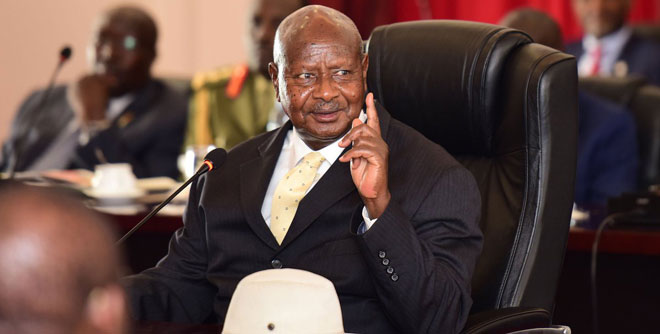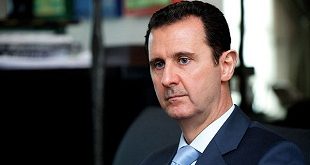
President’s self-Preservation tactics after 30 year in power are derailing development
|Stephanie Nguyen| “I don’t know any other country more democratic than Uganda; our democratic structures are comprehensive, massive, and thorough.”
This statement is representative of a few propaganda lines that filled television screens as President Yoweri Museveni gave his State of the Nation address to dignitaries and the nation on June 06 in accordance with the provisions of the Constitution of Uganda under Article 101, Clause 1.
As an outsider who has spent a limited amount of time in Kampala, I say there is strong evidence that shows that Uganda is not a true democratic country as Museveni believes.
The notion of democracy includes inherent rights fundamental to each Ugandan which include the right to life, information, liberty, association and security among others. However, some Ugandans are not aware of these rights and the lack of land rights continues to hinder the effective participation of many, especially women, in productive activities. The agriculture sector, in which up to 76% of women in Uganda are involved, is most affected.
In the education sector, the percentage of women that completes tertiary school is significantly less than men. This notwithstanding, the affirmative action of 1.5 entry points that the government boasts of is only available at the tertiary and University level and is inconsequential to the many girls who drop out earlier due to unplanned pregnancies, unaffordability of menstrual hygiene products and management, and other health-related or economic issues.
Speaking with only a handful of people, it is apparent that support for the President in the city of Kampala remains low. Ugandan towns and cities; full of conscious populations, intellectuals and well-educated individuals, demand more from their government than the weak democratic institutions plagued with corruption mandated to do it. In addition, these areas continue to face the brunt of the regime in terms exploitative tax frameworks, incessant rent increases, and even unfavourable undemocratic practices.
I will allude to the 2016 general elections where urban areas did not receive voting materials on time, social media was shut down, and there was heavy military presence on the streets and polling stations. Although the president has achieved security for Ugandans, whatever he is emphasising now will not contribute to development in Uganda and only serves to cement his rule within Uganda, his military foot print in the greater Great Lakes Region and Africa at large.
For Uganda to progress there must be an emphasis on education while drastically reforming existing democratic institutions. Education is the key to empowering the youth in Uganda. Educated individuals are able to create opportunities for themselves when they know how to. They are able to expect more from life and are free to have goals and ambitions which will contribute positively to the economy. In short, enabling individuals to make their own decisions will ultimately catalyze development in Uganda.
In fact, President Museveni who has served for slightly over three decades stands on the precipice of being labeled a dictator. The immense influence Museveni has accumulated in that time makes it hard for him to step down and relinquish his power. His actions during the time of his reign signify only to a minimal extent any steps towards progression and development in Uganda.
Undoubtedly, it is possible for a country to advance economically and develop politically if the right dictator is in place who knows how to rule his people accordingly. For example, Lee Kuan Yew in Singapore was able to transform his country from a third world country to a highly developed one in his thirty-year rule.
In the 1960s when Singapore and Uganda were at the same pace of development, Lee Kuan Yew focused on improving human rights, education, and infrastructure. Labeled as a dictator, he was able to effectively put Singapore on the path to development.
On the other hand, Uganda went through a series of turmoil from the early 1960s to the mid-80s prior to the takeover of power by President Museveni’s National Resistance Army (NRA) in 1986. As a result of the turmoil, institutions could not be built, and therefore were either absent or remained weak.
A president that does not listen to his citizens lives off patronage and self-preservation above all else and banks on the poverty and ignorance of a poor population to preserve his power. He cannot assume he is leading a true democracy. Furthermore, extending Presidential terms past what is stated in the Constitution without holding a referendum is another example of authoritarian tendencies.
On a broader level, drastic changes to eliminate corruption must be made in order to alleviate the stagnation that has taken place in Uganda’s development. The excessive spending of Museveni and his family and his cabinet ministers resulting from patronage is also something that must be challenged.
Instead of millions of shillings being spent on luxurious materials, suitable alternatives could be spending that money on infrastructure, education, and healthcare improvement. The upper elite have benefitted from Museveni’s rule while the lower class has felt the wrath of his corruption.
Ultimately, the President’s actions in the past do not align with the statements made during his State of the Nation Address. It is evident that Museveni has improved infrastructure and human rights more than his predecessors. Furthermore, Museveni has achieved relative stability and economic growth. But his lengthy rule has led him to become complacent. Perhaps with the proper institutions in place and a leader with a fresh perspective, Uganda has the ability to become a true democracy with structures that are, using Museveni’s own words, “comprehensive, massive, and thorough.”
****
Stephanie Nguyen is an exchange student at Centre for Policy Analysis in Kampala.
 The Independent Uganda: You get the Truth we Pay the Price
The Independent Uganda: You get the Truth we Pay the Price



The question is, does president museveni pose a threat? First to who? Second ,what sort of threat? . Want to thank the author of the article for eloboration. My few museveni as an individual is not an eminent threat, this doesn’t make him a threat freeman. But museveni becomes an iminent threat only if he continue to listen to the wolves around him, they feed him with false imformation, with simple intent to get money. Due to this continued feeding false information to museveni, is able to make bad decisions that hurt Ugandans by holding them back words, therefore redering him a social menace to Ugandans. I have compared NRM and JUBILEE for Uhuru and Ruto party in Our neighbour Kenya. NRM 2200km of roads in 35 years, JUBILEE 7000km in four years and they are building 3000km in the next one year that will put them to 10000km in five years. Looking at museveni performance and contrast that with Jubilee, I see a problem of poor governance, panctuated with enormous corruption, abuse of power. violating the only agreement on document Ugandans have with him the Constitution. Violating human rights, disregard for his country men. So museveni should start negotiating exit, rather than pushing for more time.
I happen to second your comment, political re-orientation as opposed to effective political administration is driving this country to a rotting spot, the people we choose to represent us are the real eminent threat to the development of our economy, they assume to be decision makers yet practically they are plutocrats, who in disguise of supporting the President, swindle the government resources to their pockets and end up making false policies and sectarian reforms in favour of paving way for undemocratic tendencies to prevail, take an example of age limit where the President is tabling 500m shs for each mp to make reforms or rather amend the section to guarantee him as life President. we have a bogus legislative body in our country